Many new keto dieters are terrified of butter because they think it’ll trigger a heart attack.
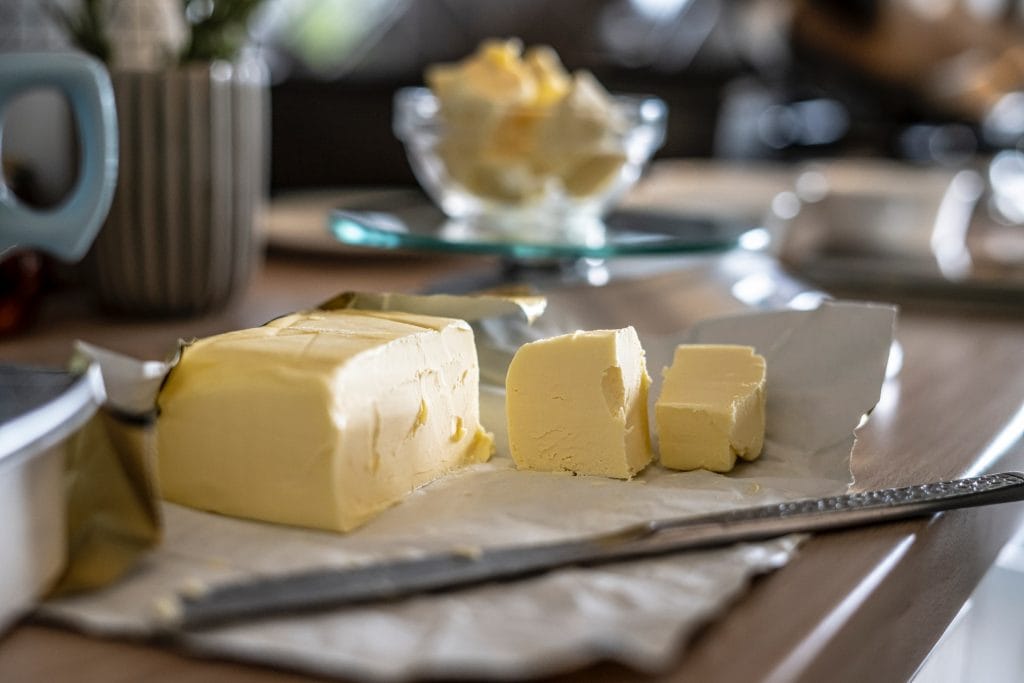
Fortunately, this is a myth and several studies find no link between saturated fat and heart disease.
But can you eat butter while remaining in ketosis?
This article answers all your questions about eating butter on keto. I’ll cover the amount of carbs in butter while looking at some yummy alternatives.
How Many Carbs Are In Butter
KetoConnect verdict: We give butter a keto-friendly rating of ⭐⭐⭐⭐⭐(out of 5)
One cup or 227 grams of butter contains 0.1 grams of carbs, making it a healthy cooking fat for keto dieters. Alongside olive oil, avocado oil and coconut oil, butter is one of the most popular keto cooking oils.
It also has a whopping 184 grams of fat per cup, so it’s a practical option for anyone struggling to increase their fat consumption.
But you might be wondering, “Is clarified butter keto?” In short, yes! Ghee is like regular butter but without milk solids and lactose. This makes it a good choice for those who’re lactose intolerant.
But removing the solids offers another benefit. It increases the heat stability of the butter, increasing the smoke point from 302°F to 365°F. This means you can cook it on higher heat without it burning and turning rancid.
Butter Nutritional Information
One cup of butter contains the following macro and micronutrients:
- 184 grams of fats
- 0.1 grams of carbs
- Two grams of protein
- 25 mg of sodium
- 54.5 mg of potassium
- Fatty acids like palmitic acid, stearic acid and oleic acid
- Vitamin A and D
The high added fat and zero carb content is perfect for new dieters trying to get into ketosis quickly. The trace amounts of sodium and potassium also offer health benefits like reduced keto flu and a better electrolyte balance.
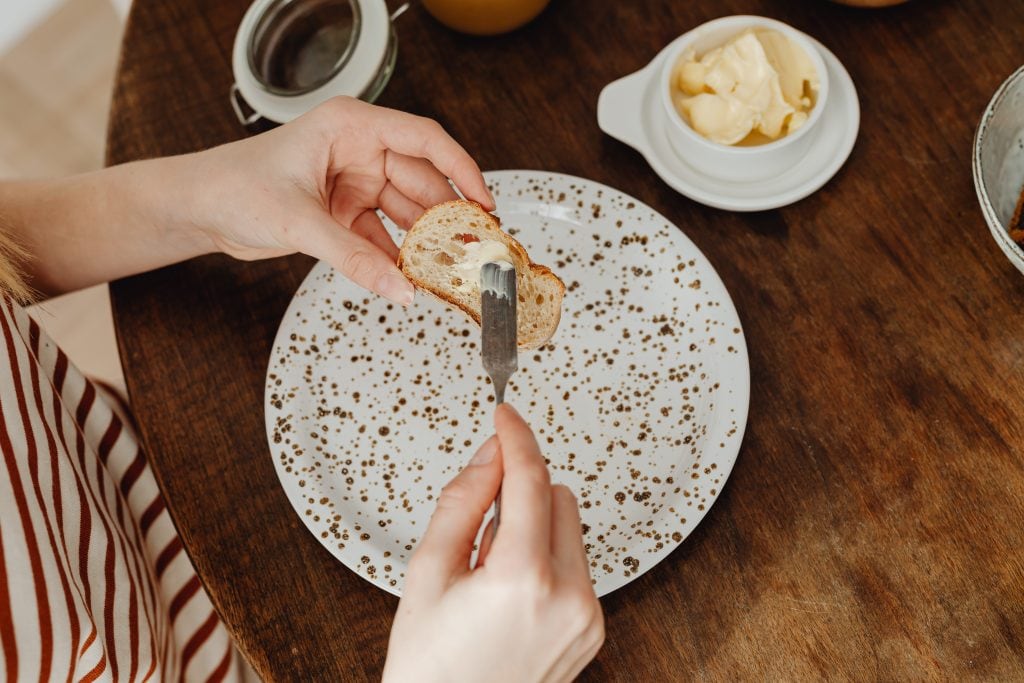
What’s The Best Butter On A Keto Diet?
All butter is keto-friendly, but certain types of butter will be a better option depending on your health goals.
If you’re doing a regular keto diet, any butter is fine, including grain-fed butter.
But if you’re trying to optimize every aspect of your diet, grass-fed, unsalted butter is for you. Research shows that grass-fed animal products have far more nutrients than grain-fed products, which makes sense.
When animals eat grass, their bodies use it to produce milk, resulting in a higher-quality end product. But if the animal’s body has to rely on grains, the milk won’t contain as many nutrients and amino acids.
Quick experiment: The next time you head to the grocery store, buy one grain-fed butter and one grass-fed butter. Fry an egg in each type of butter and see which tastes better. Most of the time, the egg fried in grass-fed butter is more delicious.
But even if you’re doing dirty keto, avoid alternative butter like margarine, and anything that uses chemical-extracted hydrogenated oil and trans fat. These oils are toxic and medical papers show it leads to chronic inflammation.
Myths About Butter On Keto
Many think that foods high in saturated fats like butter will clog your arteries and increase your chance of heart attacks.
But don’t worry. Butter won’t promote heart disease. It might even boost heart health and lower your chances of developing chronic conditions. Here’s why:
One of the most in-depth studies on heart disease compared people consuming saturated fats versus those using unsaturated fats in the form of vegetable seed oils. Researchers concluded that those who consumed vegetable oils had double the amount of heart attacks compared to the saturated fat group.
Even world-renowned health experts like Dr. Aseem Malhotra publicly state that saturated fats don’t cause heart disease.
Still don’t believe me?
A 2001 Honolulu Heart Program study on 3572 elderly people found that groups with the lowest cholesterol had the highest mortality rate. This means that the higher your cholesterol levels the longer you live.
There are obviously more factors that contribute to overall health than just cholesterol levels. But these studies show that it’s incorrect to blame saturated fat for all our problems.
Keto-Friendly Butter Substitutes
Thinking about introducing other healthy fats into your diet? Consider these alternatives:
- Ghee
- Coconut oil
- Tallow
- Olive oil
- Duck fat
Ghee
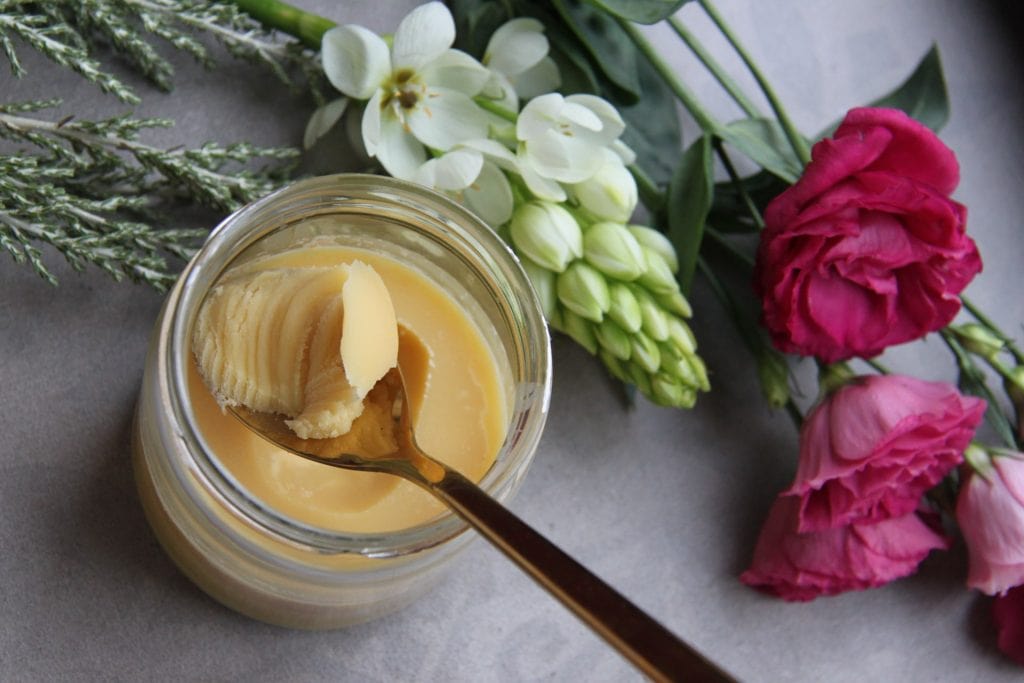
Ghee is clarified butter and has zero lactose, making it an excellent alternative to butter for anyone with lactose intolerance.
Ghee is also a practical option if you want to sear a steak with an alternative fat. Butter has a smoke point of 302°F, meaning it’ll start to burn and turn rancid before your steak is fully cooked. But if you’re cooking with ghee, it’s a more stable fat, and the smoke point rises to 482°F.
Coconut Oil
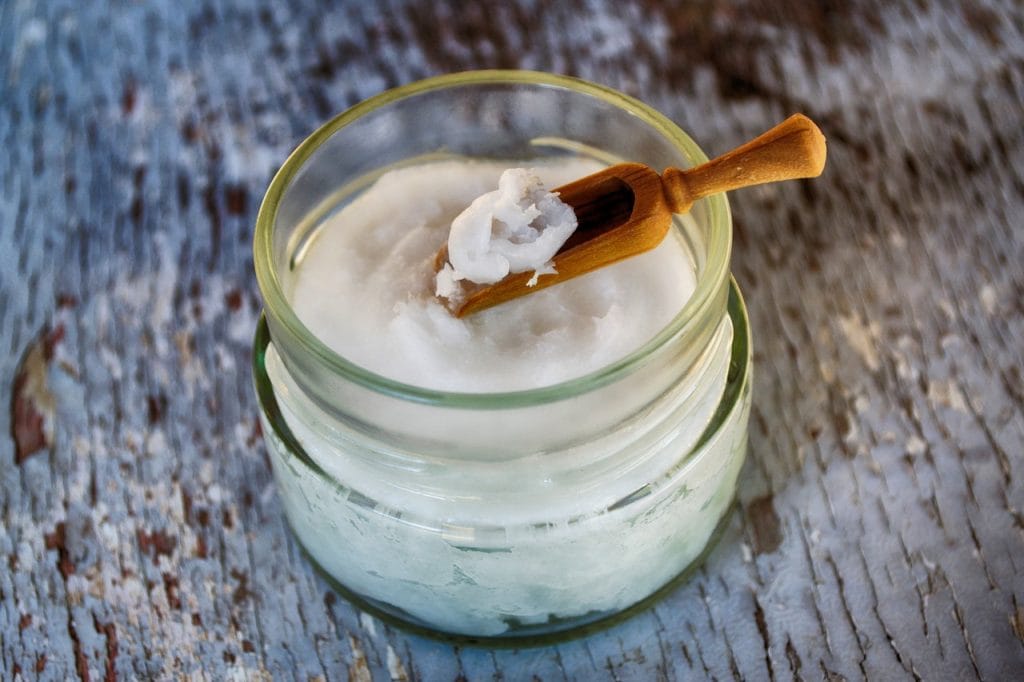
Studies show that the MCTs (Medium Chain Triglycerides) in coconut oil can fight Alzheimer’s diseases while helping you lose weight.
The best part is that you can cook almost anything with coconut as it’s also heat stable, so it won’t change depending on your heat level.
Tallow
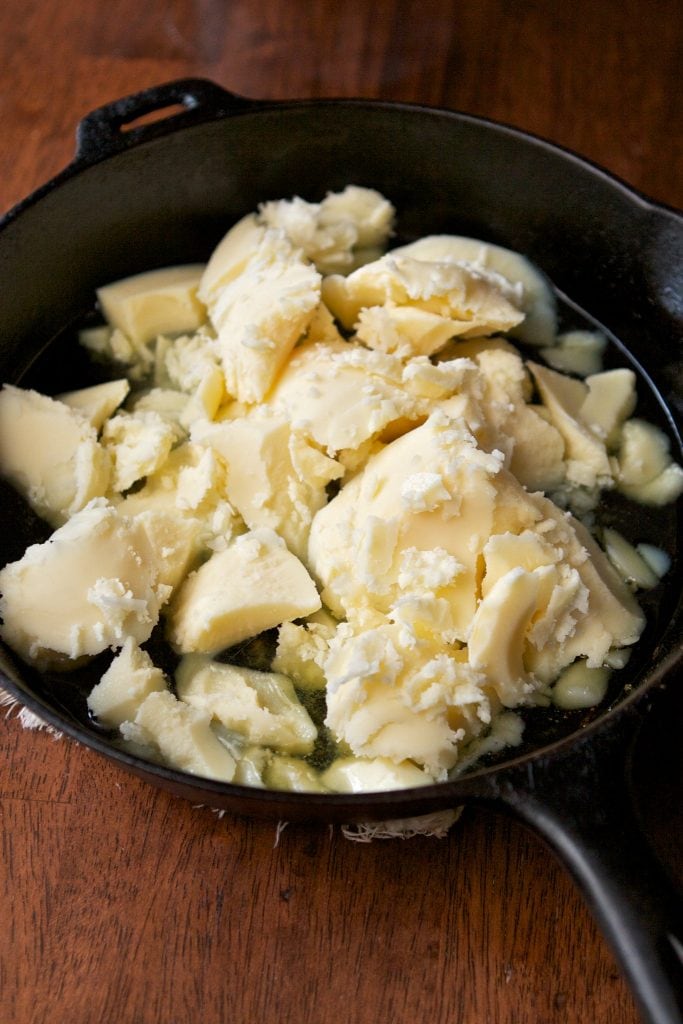
I’m a big fan of tallow since it gives your food extra flavor. It has this rich beefy taste that’s impossible to emulate with other cooking oils. Think of it as the marbling that falls off your steak during a sear.
So if you’re switching things up, tallow would be a yummy cooking fat to try. One cup of tallow contains:
- Zero total carbohydrates or fiber
- Zero protein
- 205 grams of fat
It’s basically pure fat, so it’s an easy way to increase your fat intake without having to eat meat, fatty fish or dozens of eggs.
Olive Oil
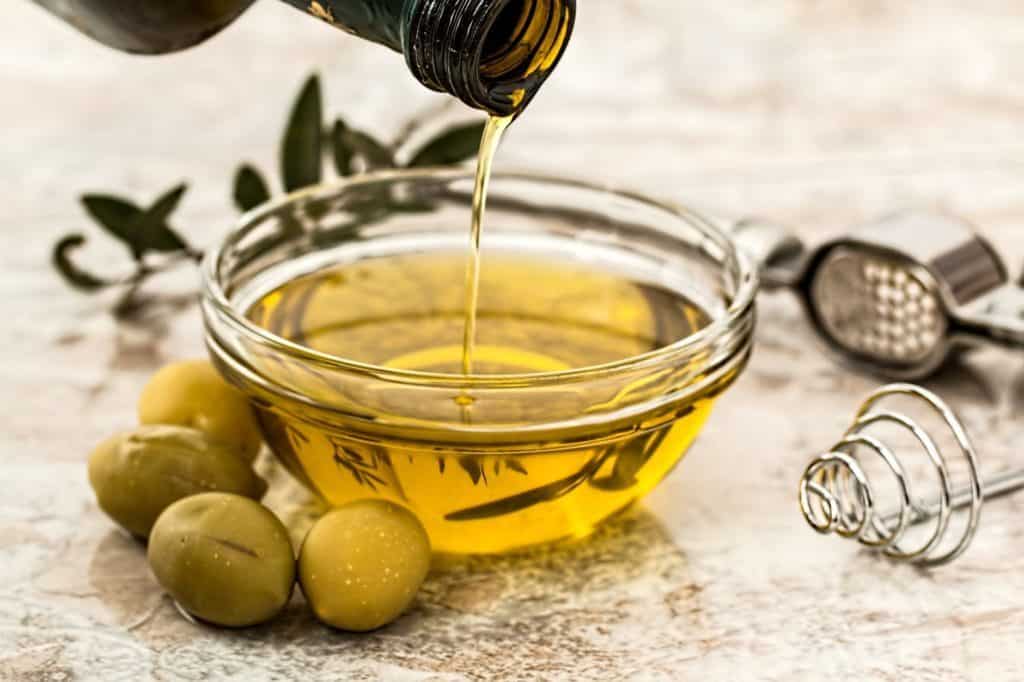
Olive oil is a favorite amongst keto dieters because of the unique taste. It almost tastes like wine combined with fruit and herbs. This is why it goes so well with salads, marinades and sauces.
One cup of extra virgin olive oil has:
- 216 grams of total fat
- 30 grams of saturated fat
- Zero net carbs
- Zero protein
- 1909 calories
But always read the label when buying olive oil. Brands will mix hydrogenous oil with olive oil so they can market it as a “healthy oil” while saving costs. So stick to bottles with 100 percent olive oil and zero funny additives.
Duck Fat
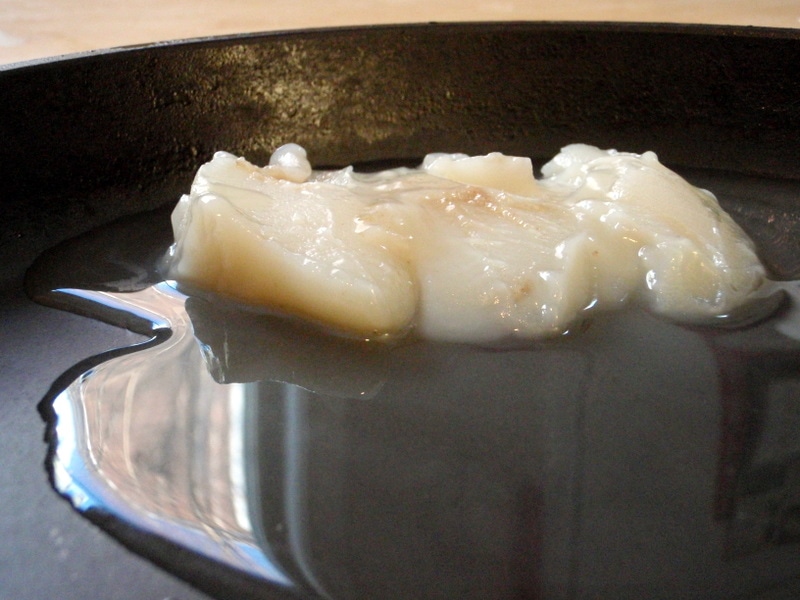
Most don’t even think of dunk fat when considering an alternative to butter on a low carb diet, but it’s sweet with a similar meaty taste. Every meal cooked in duck fat instantly becomes a better version of itself, so if you have never tried duck fat before, you’re missing out.
It also has significantly less saturated fat than most animal fats, so if you’re still hesitant to eat lots of saturated fats, duck fat is a good option. One cup of duck fat contains:
- 205 grams of fat
- 1845 calories
- Zero total carbs
- No protein
It also has a high heat tolerance, so you can use it when searing steaks or sautéing vegetables.
Final Thoughts On Butter On A Ketogenic Diet
A cup of butter has 0.1 grams of carbs, so you can enjoy it on a ketogenic diet. Feel free to use it when preparing your favorite recipes like bacon and eggs, ribeye steak or keto salads.
And if you want to shake things up, opt for ghee, coconut oil, tallow, extra virgin olive oil, and duck fat because it’s compatible with most recipes and is a rich source of healthy fat.
Written by
Matt Gaedke
Matt is a former college basketball player turned computer engineer who discovered his passion for health and nutrition after cutting sugar from his diet in 2016. That year he founded KetoConnect with Megha in order to share their ketogenic lifestyle through recipes, videos, and educational content. Matt is always seeking to grow and try new things, a passion he shares with his wife and two amazing sons.
Expert Fact Checker
Marina Reluskoska
Marina is a licensed nutritionist with a keen specialization in food laws and dedication to shaping healthier lives. Beyond her professional journey, she finds joy in crafting culinary creations, embracing an active lifestyle, and cherishing quality moments with friends. In both food and life, she believes that balance is the key to nurturing well-being.

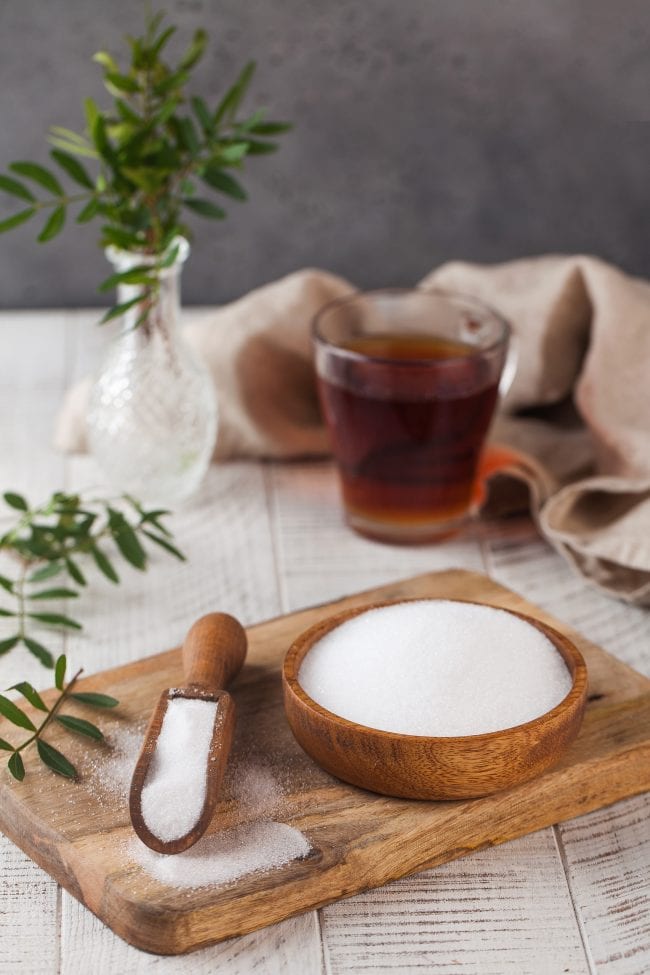
Leave a Comment